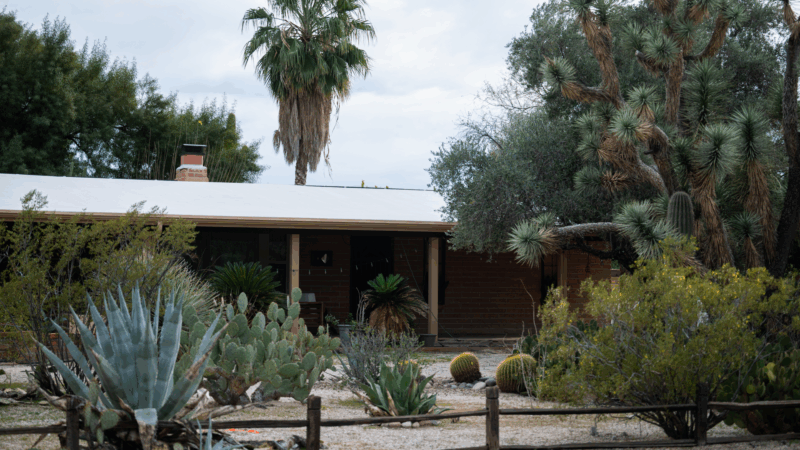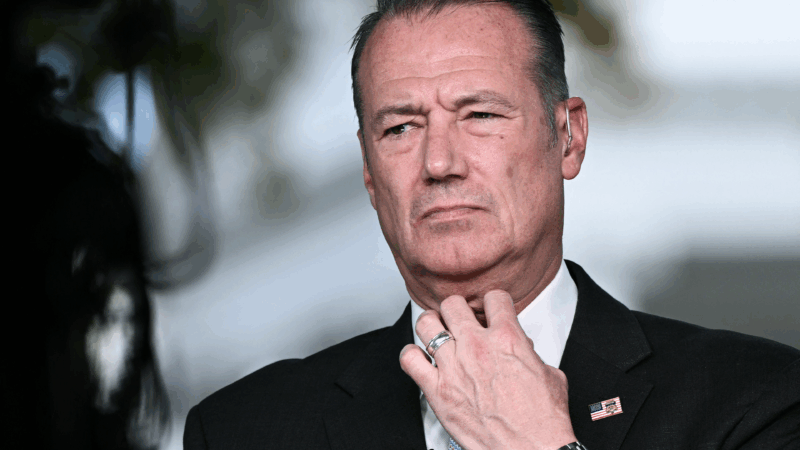Agence France-Presse says it wants to pull its hunger-stricken journalists out of Gaza
French news agency Agence France-Presse is calling on the Israeli government to allow its freelance journalists to leave the Gaza Strip because of a worsening hunger crisis there.
“They’re spending so much time and energy trying to source food and also just they just feel so weak,” Phil Chetwynd, AFP’s global news director, told NPR’s Morning Edition on Tuesday about the situation for reporters and photographers the agency works with in Gaza. “They talk about constant headaches, constant dizziness. So just the ability physically to, you know, get to a story is diminished.”
Chetwynd was speaking a day after the journalists’ union at AFP issued a dramatic plea for help on Monday.
“Since AFP was founded in 1944,” the agency’s Society of Journalists said on X, “we have lost journalists in conflicts, some have been injured, others taken prisoner. But none of us can ever remember seeing colleagues die of hunger.”
The union described the situation of locally based AFP freelancers working in Gaza. Israel has not permitted independent access for international journalists to enter the enclave since Hamas’ Oct. 7, 2023, attack on Israel. The union quoted a Facebook post by a photographer: “I no longer have the strength to work for the media. My body is thin and I can’t work anymore.”

The lack of access to food for the estimated 2 million Palestinians in Gaza has alarmed global leaders. Severe food shortages and widespread hunger continue, and Gaza health authorities say 25 children have died from “famine and malnutrition” in the past week.
On Tuesday, U.N. Secretary-General António Guterres warned that “malnourishment is soaring. Starvation is knocking on every door.”
He told the Security Council that Gaza was a “horror show with a level of death and destruction without parallel in recent times.”
Reporting in Gaza has been deadly throughout the more than 21 months of conflict, with at least 186 journalists killed in the embattled enclave, the great majority Palestinian, and most often because of Israeli airstrikes, according to research by the Committee to Protect Journalists, or CPJ.

But hunger has become a deepening challenge, as NPR’s Gaza-based producer Anas Baba explained in a story earlier this month, describing his experience seeking food from a site supported by the U.S. and Israel called the Gaza Humanitarian Foundation. He faced Israeli military fire, threats from private U.S. contractors, crowds fighting for rations and masked thieves.
The Committee to Protect Journalists said this not only threatens the lives of the media workers in Gaza — it also leaves a widening impact on the information the world can obtain from the territory.
“As these journalists face starvation, displacement, and constant threat of attack, the international community risks losing its last independent source of reporting from inside Gaza,” CPJ Regional Director Sara Qudah said in an email to NPR. “That’s not just a loss of information—it’s a collapse in transparency, a blow to advocacy for civilians, and a dangerous opening for impunity. Silencing journalists under these conditions is not simply a media freedom issue—it’s a crisis of global accountability.”
United Nations spokesperson Stéphane Dujarric told reporters on Tuesday: “I read the [AFP union] statement and it is heartbreaking. … It is a reminder of the work that those journalists who have stayed in Gaza, those Palestinians who have stayed in Gaza, are putting their lives on the line to report, in the face of fighting and in the face of hunger.”
Israel’s government did not respond to a request for comment about the AFP’s request to allow its journalists to leave Gaza.
The push from AFP received support from French Foreign Minister Jean-Noël Barrot on Tuesday, who said he hoped the journalists could be evacuated “in the coming weeks.” Barrot also called on the Israeli government to allow the international press back into Gaza.
Israeli authorities have previously brought groups of international journalists on military-led visits to Gaza and have said that they should not go to the territory unaccompanied for security reasons.
“I ask that the free and independent press be allowed to access Gaza to show what is happening there and to bear witness,” he told France Inter radio station.
This complex brain network may explain many of Parkinson’s stranger symptoms
Parkinson's disease appears to disrupt a brain network involved in everything from movement to memory.
How the use of AI and ‘deepfakes’ play a role in the search for Nancy Guthrie
As artificial intelligence becomes more advanced and commonplace, it can be difficult to know what's real and what's not, which has complicated the search for Nancy Guthrie, according to law enforcement. But just how difficult is it?
Hospitals are posting prices for patients. It’s mostly industry using the data
The Trump administration pushed for price transparency in health care. But instead of patients shopping for services, it's mostly health systems and insurers using the information for negotiations.
‘E-bike for your feet’: How bionic sneakers could change human mobility
Nike's battery-powered footwear system, which propels wearers forward, is part of a broader push to help humans move farther and faster.
Immigration officials to testify before House as DHS funding deadline approaches
Congressional Democrats have a list of demands to reform Immigration and Customs Enforcement. But tensions between the two parties are high and the timeline is short – the stopgap bill funding DHS runs out Friday.
Mikaela Shiffrin set to ski for the first time in the Olympics in team combined event
The team combined event pairs a downhill skier with a slalom skier. The top U.S. duo — the slalom star Shiffrin and Breezy Johnson, who won gold in the downhill on Sunday — is a medal favorite.








